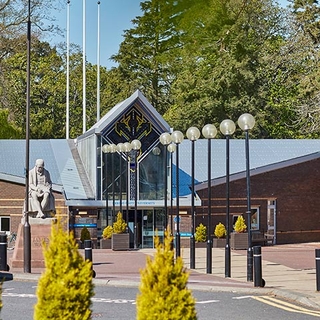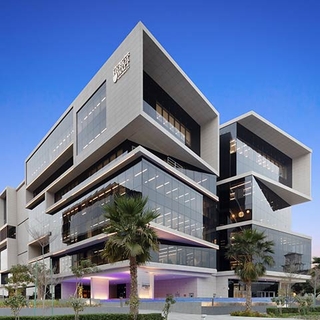
MSc Energy
Skip to section
Key information
- Mode of delivery
- Online
- Start date
- September, January
- Duration
- Varies
- Qualification
- MSc
Contact
Contact our enquiries team
Contact usOverview
Heriot-Watt is a world leading university in energy and renewables. This degree is supported by industrial suppliers and users of energy, who are committed to an ethical environmental policy.
The course is designed to equip graduates with the knowledge and skills to design and analyse sustainable energy solutions and to influence business strategies relating to energy and environmental legislation. It explores the demand and supply of energy and related technical, political, economic and social issues. Energy provision, consumption and costs are examined in engineering, economic and environmental terms. The issues studied include energy resources, power generation, process engineering, environmental legislation, environmental impact assessment and energy in building.
Students studying on this degree are typically those working in industrial sectors, the built environment, SMEs exploring new products and processes, and energy and environmental advisory organisations.
Online learning
This course can be studied via Online Learning, ideal for those in employment or with other commitments, providing flexible study options that fit around work or family. View our How online learning works pages to find out more. It can also be studied on-campus full-time or part-time.
Degree duration
Most students typically intend to complete their studies via online learning within 3-4 years. The MSc Energy by IDL has both a January and September intake.
Watch a video of academic Gudrun Kocher discussing the MSc in Energy.
Course content
Year 1
Students on the Energy MSc undertake eight taught courses and a dissertation. Courses are available in the following subject areas:
Degree structure
Semester 1
Optional
- Electrical Power Systems
- Process Intensification
- Renewable Energy Technologies
- Climate Change, Sustainability and Adaptation
- Ventilation and Air Conditioning
- FLAME Appraisal
Semester 2
Optional
- Environmental Impact Assessment
- Demand Management and Energy Storage
- Quality Management
- Project Management
- Systems Thinking and Analysis
- Design of Low Carbon Buildings
- Energy Systems and Buildings
- FLAME Development
Semester 3
Core
- Masters Dissertation
Any semester
Core
- Foundations of Energy
- Technology Futures and Business Strategy
- Critical Analysis and Research Preparation
Optional
- Economics Ren Energy
- Delivering Successful Projects
- Economics for Business
- Entrepreneurship and Creativity
- Financial Decision Making
- Leadership Theory and Practice
- People, Work and Organisations
- Developing and Executing Strategy
- Strategic Marketing
Detailed degree guide
Understanding, Knowledge and Cognitive Skills
- Develop a critical understanding of the principal theories, concepts and tools underpinning Energy technologies and their impact.
- Provide an extensive, detailed and critical knowledge and understanding of at least one specialist area within this domain.
- Understand and be able to use of a significant range of the principal skills, techniques and practices required to design or assess components or systems, or to develop new opportunities.
- A broad knowledge of the main areas of Energy Engineering Sciences and practices.
- Develop application-based knowledge and skills relating to a range of activities.
- Develop and apply skills in critical analysis, evaluation and synthesis in consideration of the range of theories, concepts and techniques, and in the design of projects and experimental models.
- Develop abilities to critically understand and apply relevant theories and technologies to developing analytical and design skills
- Develop and utilise advanced problem-solving skills and techniques in the development of original and creative solutions to general and specialist issues.
Scholarship, Enquiry and Research (Research Informed Learning)
- Build an overview over techniques and current debates on the basis of independent, research-informed learning.
- Develop advanced skills by transferring and applying knowledge acquired through research-informed learning.
Approaches to Teaching and Learning
The programme draws on a broad range of teaching and learning approaches, including:
- formal lectures in which essential knowledge and skills are introduced,
- group-based learning where specialist skills are applied and practised as well as team working and communicative skills are developed
- individual assignments, some focussing on the application of specialist skills, numeracy and ICT, some on communication (such as oral presentations and written reports), and some on individual responsibility and research-informed learning
Assessment Policies
All courses within the programme have a balance of summative and formative assessment, where the major component of the summative assessment will usually be an end-of-course examination for the taught courses and an extensive written report such as the dissertation resulting from the research phase of the programme. The formative assessment of programme draws from a range of methods, including specified exercises, the compilation of a portfolio, a research-informed report, or an oral presentation.
In common with the other postgraduate taught programmes in Mechanical Engineering, the programme consists of two phases:
A. A taught phase, consisting of a set of 8 taught courses, some mandatory and some optional, which the students will normally complete over two semesters.
- Assessment of the taught phase is through a variety of methods including coursework and/or examination.
- Students are normally required to submit all elements of assessment before being permitted to progress to the next stage.
- The examinations are at the end of the semester during which the course is taught.
- In exceptional personal or medical circumstances students may be granted leave by the examiners to resit part or all of the assessment on one occasion only and at a date decided by the examiners, as stated in university regulations 4 and 5. This provision is in addition to the provision that students may retake assessment for courses in which they have achieved a grade D or less.
- Consistent with university regulations, students will be able to retake the assessment of up to a maximum of 3 taught courses at the next opportunity, subject to payment of the appropriate fees to the University, and may be required to do so to obtain the necessary credits for completion of their programme or for progression. Students may only resit courses for which their examination grade is D, E or F. The method of reassessment for each course is specified in the appropriate course descriptor.
Students will normally complete the taught phase and the first stage of the dissertation phase, at which point progression to the last two stages of the dissertation phase is dependent on assessed performance. To progress, students must meet the criteria stipulated in the Programme Notes. Students meeting the required standards for Masters in the taught phase will be permitted to progress to the second stage of the dissertation phase.
Students meeting the required standards for Postgraduate Diploma and Postgraduate Certificate in the taught phase, but not meeting the Masters standard, will not be permitted to progress to the second stage of the dissertation phase.
Students failing to meet the required standards for Postgraduate Diploma and Postgraduate Certificate in the taught phase will not be permitted to progress to the dissertation phase, nor will they be eligible for any award.
B. A dissertation phase, consisting of two stages:
- A taught course, Critical Analysis and Research Preparation, in semester 2, during which the student identifies the project, carries out a literature review, and plans the research. The assessment of this work is in the form of a portfolio submission, which will be graded separately from the dissertation itself.
- The second stage consists of an appropriate technical research project, during the Summer Semester where the student carries out the bulk of the research, leading to the preparation of a substantial project dissertation report, and an oral presentation towards the end of the programme.
- Dissertations must be submitted by the publicised submission date; dissertations submitted after that date and without the prior consent of the Programme Director may be assessed at a penalty.
- Dissertations will be marked by the supervisor and at least one independent internal marker as described in detail in the Programme Notes. All dissertations and marking sheets will be made available to the external examiner prior to the Exam Board.
Assessment policies affecting Award decisions:
- The specific Award requirements are detailed in the Programme Notes
- In exceptional circumstances the Exam Board has the discretion to permit student progress or award, irrespective of student performance against required standards and policies, subject to appropriate justification provided by the Board.
Fees and funding
Tuition fees
| Status | Per course [footnote 1] | Dissertation/Project [footnote 1] |
|---|---|---|
| UK / EU / Overseas | GBP1185 | GBP1690 |
- The tuition fees listed are for courses starting between September 2023 and August 2024. Fees normally increase annually. Find out more about our tuition fees.
Additional fee information
Financial support
Tuition fee loans are available to Scottish distance learning students on some taught postgraduate courses. Find out more from the Students Awards Agency Scotland (SAAS).
Scholarships and bursaries
We aim to encourage well-qualified, ambitious students to study with us and we offer a wide variety of scholarships and bursaries to achieve this. Each year, hundreds of students enhance their educational experience through a variety of Heriot-Watt and externally funded scholarships, including opportunities funded by the University's generous alumni community, based all over the world.
View our full range of postgraduate scholarships.
Entry requirements
A First or Second Class Honours Degree in an engineering discipline or in the physical or chemical sciences. The degree can be from a British or overseas university. Different degrees, together with relevant industrial experience, will be considered.
English language requirements
If your first language is not English, or your first degree was not taught in English, we'll need to see evidence of your English language ability. The minimum requirement for English language is IELTS 6.5 or equivalent. We offer a range of English language courses to help you meet the English language requirement prior to starting your masters course:
- 20 weeks English (for IELTS of 5.0 with no skill lower than 4.5)
- 14 weeks English (for IELTS of 5.5 with no more than one skill at 4.5);
- 10 weeks English (for IELTS of 5.5 with minimum of 5.0 in all skills);
- 6 weeks English (for IELTS 5.5 with minimum of 5.5 in reading & writing and minimum of 5.0 in speaking & listening)
Why Heriot-Watt?
Flexibility and affordability
Study at a time and pace that suits you, and even while you work. HW Online offers pay-as-you-study courses and fees inclusive of exams and study materials, meaning you can focus on success, not extra costs.
Your career
Employers around the world actively seek out our graduates because they are work-ready. All our degrees are career-focused and relevant to the needs of industry. Around 95% of our students are in employment or further study within six months of graduating.
Online events
We host online events throughout the year, giving you the opportunity to speak to our academic teaching staff, meet students, find out what it is like to study using our Virtual Learning Environment (VLE) and discover how to enrol.
Lifelong connections
Upon completing your studies you will automatically join the UK's oldest alumni association The Watt Club, with 147k members worldwide.
Study options Edinburgh - Energy
Our MSc in Energy is also available to study at our Edinburgh campus.
Study options Dubai - Energy
Our MSc in Energy is also available to study at our Dubai campus.





